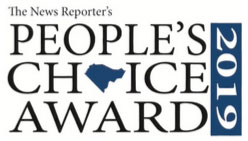Privacy Policy
Advantage Behavioral Healthcare, Inc.
Name: DOB:
Medical Record #: Medicaid #:
Confidentiality
YOU have a right to confidentiality about services you receive from Advantage Behavioral Healthcare. However, there are times when State and Federal Laws require us to share information with others who have a right or need to know information such as:
- Your legal guardian gives explicit permission to share specific information about your treatment.
- If you are under 18, your next of kin may be told that you are getting services from Advantage Behavioral Healthcare, if they do not already know, and if it is in your best interest.
- If the court orders Advantage Behavioral Healthcare to release information contained in your records.
- If a person appointed to help you, called a client advocate, needs to see your records in order to be able to advocate for you.
- If an Advantage Behavioral Healthcare lawyer needs to see your records because of court proceedings.
- If you become imprisoned, we may share information from your records with prison officials.
- If there is an emergency, with another person who is treating you.
- If the professional who is responsible for your receiving services with Advantage Behavioral Healthcare needs to have access in order to ensure you continue to receive services.
- If we believe you are a danger to yourself or to others we may share information with your legal guardian or other helping professional.
- If we believe you are likely to commit a crime, we may share information with law enforcement.
- If a representative of the Department of Social Services requests information as part of an investigation of child abuse, neglect, or dependency, we must give this information to the Department of Social Services.
- If another public agency may need to receive your records when your care is transferred.
Information regarding any alcohol and/or drug abuse is to be kept confidential at all times. Federal law and regulations as well as North Carolina law protects client privacy about alcohol or drug abuse. Generally, an agency may not reveal to anyone that a client is an alcohol or drug user UNLESS:
- The client gives permission in writing;
- The court orders the disclosure; or
- The disclosure is made to medical professionals in a medical emergency or to a qualified professional for research, audit, or program evaluation. This professional must keep the information confidential; or
- If there is legitimate risk or harm to yourself or others.
All Advantage Behavioral Healthcare staff and service providers are required by North Carolina Law to report any suspicion of abuse, neglect, or dependency to the local Department of Social Services. Violation of any confidentiality information by a staff member is a crime and should be reported to appropriate authorities. Federal and North Carolina laws do not protect confidentiality involving circumstances of abuse and/or neglect. (See 42 USC 290 dd-3 and 42 USC 290 ee-3 for Federal laws and 42 CFR Part 2 for Federal regulations.) Please ask a staff member if you have questions about your rights about confidentiality.. If there is information in this pamphlet that you do not understand, please ask an Advantage Behavioral Healthcare Supervisor. If you think that you have been denied your rights, you may want to contact:
- your parent(s) or legal guardian;
- an advocate or attorney, or
- an Advantage Behavioral Healthcare Supervisor to begin the grievance process.
If at any time you feel that you cannot get the information or help you need from staff at Advantage Behavioral Healthcare and you feel that your rights have been violated, you can get help about your rights from:
The Governor's Advocacy Council for Persons with Disabilities
1-800-821-6922
Revised 12/11/2019

